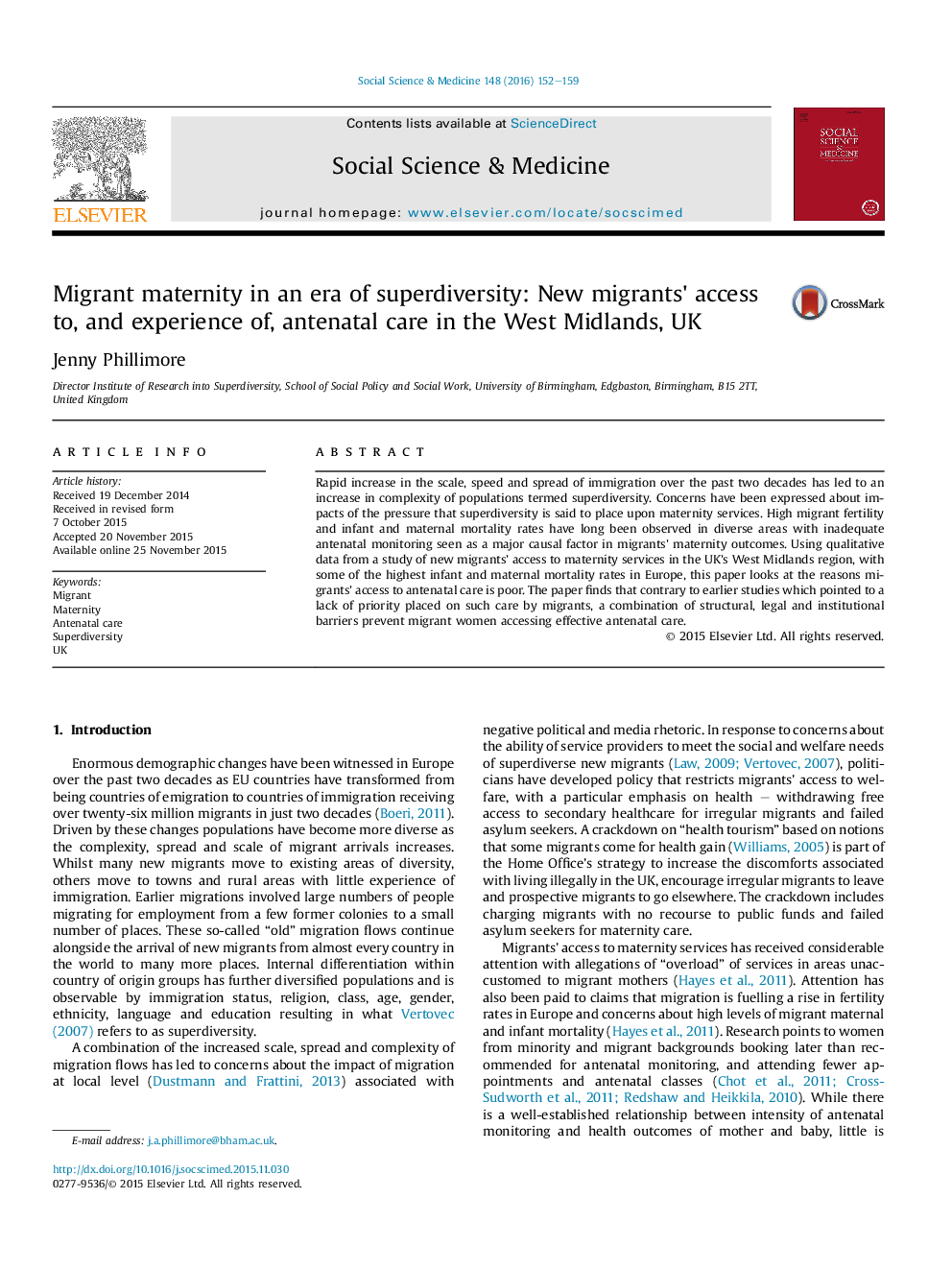| Article ID | Journal | Published Year | Pages | File Type |
|---|---|---|---|---|
| 7331244 | Social Science & Medicine | 2016 | 8 Pages |
Abstract
Rapid increase in the scale, speed and spread of immigration over the past two decades has led to an increase in complexity of populations termed superdiversity. Concerns have been expressed about impacts of the pressure that superdiversity is said to place upon maternity services. High migrant fertility and infant and maternal mortality rates have long been observed in diverse areas with inadequate antenatal monitoring seen as a major causal factor in migrants' maternity outcomes. Using qualitative data from a study of new migrants' access to maternity services in the UK's West Midlands region, with some of the highest infant and maternal mortality rates in Europe, this paper looks at the reasons migrants' access to antenatal care is poor. The paper finds that contrary to earlier studies which pointed to a lack of priority placed on such care by migrants, a combination of structural, legal and institutional barriers prevent migrant women accessing effective antenatal care.
Related Topics
Health Sciences
Medicine and Dentistry
Public Health and Health Policy
Authors
Jenny Phillimore,
